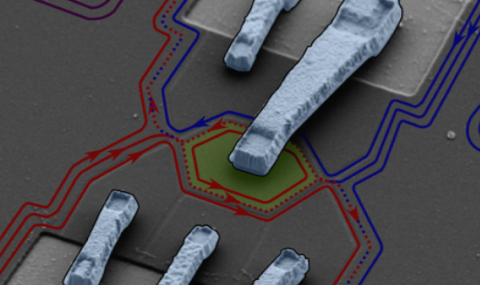Topological superconductors represent a phase of matter with nonlocal properties which cannot smoothly change from one phase to another, providing a robustness suitable for quantum computing. Substantial progress has been made towards a qubit based on Majorana zero modes (MZM), whose exchange (braiding) produces topologically protected logic operations. However, because braiding MZMs does not offer a universal quantum gate set, Majorana qubits are computationally limited. This drawback can be overcome by introducing parafermions, a novel generalized set of non-Abelian modes. The primary route to synthesize parafermions involves inducing superconductivity in the fractional quantum Hall (fqH) edge.
In this line of research, we use high-quality graphene-based van der Waals devices with narrow superconducting niobium nitride (NbN) electrodes, in which superconductivity and robust fqH coexist. In our previous study we found crossed Andreev reflection (CAR) across the superconductor separating two counterpropagating fqH edges which demonstrates their superconducting pairing. These results provide a route to realize novel topological superconducting phases with universal braiding statistics in fqH-superconductor hybrid devices.


